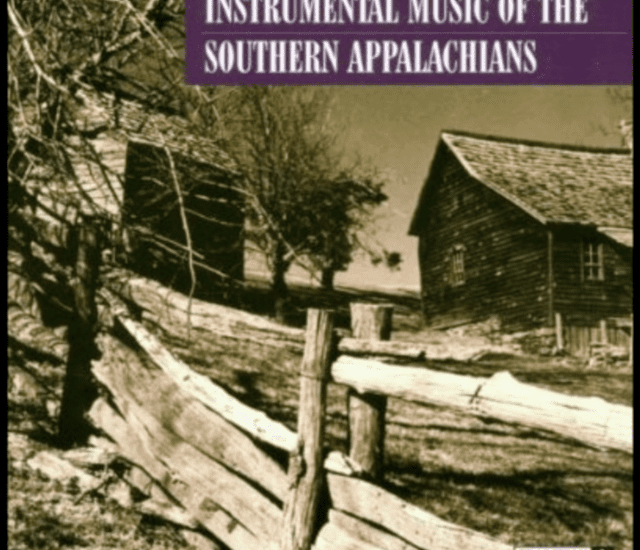In the Eastern United States a century long musical tradition has been growing and evolving: Appalachian folk music. A reflection of American culture itself, this music draws upon influences from all over the world (Scottish hymns and flute music as well as African blues), but has evolved into something distinct to something uniquely American.
Many other American music genres such as rock n roll, country, and bluegrass have drawn heavily from Appalachian folk sounds. Characterized by its uncommon combination of a variety of instruments such as the fiddle, banjo, Appalachian dulcimer and autoharp, Appalachian folk music has often been associated with poverty, lack of education, and rural American communities. This music, however, has helped to demonstrate the diversity of its people and the richness of its culture, despite the stereotypes and folklore about the region largely believed by the rest of the country. Despite its strong influence in popular music, traditional Appalachian folk music has largely been forgotten among the majority of the population, or written off as being a rural, unpopular practice.
Although the number of artists who still play Appalachian music is dwindling due to a generally low level of popularity among the American public, one can still find Appalachian music in the southern Appalachian region in particular, including in Virginia, West Virginia, and North Carolina. Despite the many misconceptions surrounding Appalachian music and the Appalachian region from the rest of the Country, Appalachian music has continued to grow and evolve in recent decades. For example, instruments involved have changed, and modern Appalachian singers have gravitated more towards the guitar, and away from other more traditional instruments listed above. This can be seen in the artist Derek Spencer, and his 2018 song The Witches of Appalachia.
Born in Kentucky, Derek Spencer discovered a love for American folk music in church as a child. He now tells stories through his own Appalachian-style music.Sam Amidon also reinvents traditional folk music, including the Appalachian repertoire. He transforms familiar Appalachian songs, such as Little Maggie, a 1940s tune from The Stanley Brothers, adding reverb, tempos drawn from jazz and percussions drawn from funk.
Sam Amidon –Maggie
Not all modern Appalachian artists have shifted towards the guitar as their main musical instrument, with others still performing with a variety of traditional instruments. To find this, one needs to look no further than Charlie Beck & Charmaine Slaven. This married duo performs traditional Appalachian music from Seattle, where they live. Their 2015 Album Chestnuts features vocals, banjo, guitar, clogging, and fiddle. Appalachian music is an American tradition which, despite misconceptions, continues to grow and evolve as an important genre of American folk music.
Exploring the black roots of Appalachian music
Born in North Carolina to a white father and a black mother and author of the wonderful album There is no Other with Francesco Turrisi in 2019, the singer also plays the banjo, an instrument whose origins, she reminds us with an ethnomusicologist’s erudition, are African (its ancestor is the akonting, a West African lute). Combined with the 19th-century violin by European colonists, who themselves imported various traditions, the banjo is an important factor in the original creolisation of North American music. “There was such hostility to the idea of a banjo being a black instrument”, Giddens recalls: “It was co-opted by this white supremacist notion that old-time music was the inheritance of white America.”
Jake Blount is an African American Queer musician, playing fiddler and banjo. His musical path began in punk and metal bands, but in 2012 after the profound chock caused by the murder of Trayvon Martin, he decides to research the music of black slaves. His family comes from Virginia, where his ancestors where enslaved in the plantations. He discovers the afro-american roots of the Appalachian banjo and fiddle, and decides to magnify them. His album Spider Tales includes topics of discrimination, inequalities and retribution.
This article is the result of a collaborative project between #AuxSons and Alejandro Abbud Torres Torija, professor at Sciences Po Paris Campus Reims, and regular contributor to #AuxSons. As part of the course “Sounds of the world: music as a mirror of intimacy and the collective”, international students from Sciences Po Paris Campus Reims looked at the links between music from the four corners of the world and sociopolitical issues.
The authors :
Laila VÉISSID was born and raised in New York City. She is currently finishing her second year in the dual degree program between Sciences Po Paris campus de Reims and the University of California Berkeley. Laila played the piano for three years, but stopped before reaching high school. She is grateful to have grown up in a family where music was always valued and played.
Katherine HAMILTON is from Portland, Oregon, USA and is pursuing a bachelor’s degree in politics and government from Sciences Po Paris campus de Reims in France. She has been interested in music for the entirety of her life. Her main experiences with music come from competitive dance as a child and musical theater as a teenager. She is fascinated by different cultures and musical traditions around the world.


